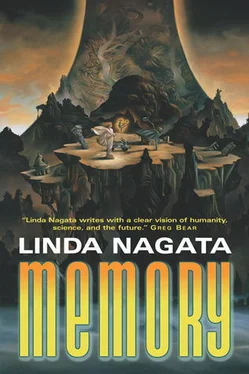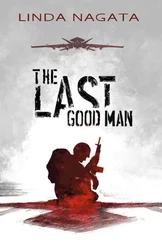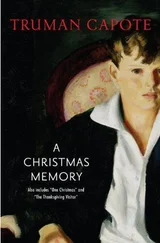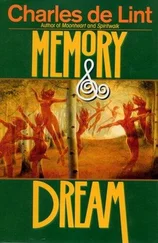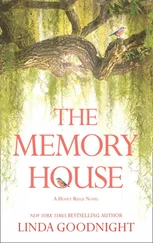“Dad! I’m not going yet.”
“You’d better not.” We hugged. Then he spoke softly, so that Liam couldn’t overhear. “Your mother will send you Yaphet’s market address. He has yours. It’s only fair.”
I nodded. Then he was back in the truck, waving good-bye and ordering us to be careful. “I’ll be home in a week,” he promised, and I believed him, though I’ve learned since that promises are not always possible to keep.
“Liam, are you angry?”
He was astride his bike, his sunglasses on so I couldn’t see his eyes.
He shrugged. “So. Maybe a little.” We had talked of wayfaring together when he was ready to return to the road. Now he would have to go on alone.
The afternoon was hot and still. There were no clouds, and the sky had been baked to a pale, pale blue. “It wasn’t supposed to happen like this,” I said. “I don’t think I’m ready.”
“Don’t you dare complain, Jubilee. You’ve won the prize.”
So I had.
I looked out across the rolling plain of grass to the distant city shimmering in the heat. “I’ve never been anywhere, Liam. I’ve never done anything.”
“So go visit him. Go to live with him! That journey should give you all the adventure you’ll ever want.”
“I wish the matchmaker had found a lover for you instead.”
He sighed. “So maybe I’ll go with you when the time comes. Maybe there’ll even be someone there for me, and you and I, we’ll live close together. Kedato’s right, Jubilee. You have a lot of luck about you. Do you think it could stretch that far?”
“I don’t know. I hope so.” It was a strange kind of luck I had; a kind that didn’t make me happy.
“Come on,” Liam said. “Let’s get going. It’s later than I like.” He nodded toward the city. “If those towers are accessible, we can stay in them tonight. But if not, it’s going to be a long run to Olino Mesa.”
I nodded. We would need to be in some kind of sanctuary by nightfall, in case the silver should rise. High ground was safest. If we could get into one of the towers we could camp on an upper floor, where we’d be beyond the reach of all but the worst silver storms. But if the towers were closed to us, we’d have to cross a hundred miles of wilderness to reach Olino Mesa, the only significant eminence on the plateau. Of course, even if we were forced to camp on the plain, the odds favored us, for in this country the silver still came only an average of one night in ten. But when it’s your life being gambled, one in ten odds are not so good.
I climbed onto my bike, balanced it, then kicked up the stand. “I hope Yaphet stays home, and that I’m the one to do the traveling.”
Liam grinned. “Your mother knew you’d feel that way. It’s why she didn’t want to tell you about Yaphet.” He touched his ignition and his bike whispered to life, a soft purr of pumps. “I don’t know anything about this boy of yours, Jubilee, but I can tell you that no father of mine would have been able to keep me home if I found a lover like you.”
I blushed, then looked down, fumbling at the ignition switch to start my bike.
“Put your glasses on,” Liam said.
I did. Then, in a small voice, I whispered my greatest fear. “What if I hate him?”
“It won’t matter.”
“Liam! Don’t say that.”
He studied me a moment through his dark sunglasses. Then he turned back to the city. “It’ll be all right for you, Jubilee. Don’t worry. But it’s late. We need to go.”
The plateau was a softly undulating land, covered in crisp brown, waist-high grasses that hid the dry streambeds riddling its surface like cracks in the glaze of a dropped dinner plate. We followed the drainages when we could—that way at least we couldn’t fall into them—but the dry streams meandered in lazy paths while we knew our destination. So we spent the better part of an hour stirring up clouds of dust as we slid in or climbed out of a chaos of shallow gullies. We disturbed a few rabbits and a small herd of ankle deer, but it was a blue hawk, drifting overhead, that marked our arrival at the city.
We stopped just short of a stark boundary. The grasslands of the plateau ran up against the gleaming white stone of low buildings separated by equally white streets that looked as if they had been sliced off from outlying neighborhoods by some great knife. Stark, brilliant white was the color of every surface, even the shingled rooftops, which caught the sunlight and split it apart, so that the buildings were haloed in a rainbow glow. Despite its weight, despite its great size—the city was larger by far than the enclaves of Halibury and Xahiclan together—it had about it a sense of impermanence as if it might melt in a rain, or crumble in a drying wind, or vanish overnight into another silver flood like the one that had created it. It made me think of some gigantic fancy of sugar crystal. I wondered if it might really be sugar, or salt. When we advanced to the city’s edge I tasted a wall, but it was not.
Many of the buildings looked as if they’d been reworked by silver, perhaps many times, before the whole city was finally taken. Their walls were melted, the white stone puddled in round lenses that sent dancing heat shimmers rising into the baking air. Liam looked grim as he surveyed the damage. “If the silver touched only the outlying buildings at first, then the residents might have had time to get away before the final flood came.”
That was the way history described the erosion of an enclave. A failing temple could not produce enough kobolds to ward off the silver. As the defensive perimeter thinned, silver would creep over the walls, licking first at the outlying buildings, then moving deeper into the city’s heart on each subsequent night. Only someone with a death wish would stay to meet it.
Our world had existed for thousands upon thousands of years. That was clear from the fragmented histories that had come down to us, but most of the past was lost, washed away by time and silver floods. Uncounted enclaves have vanished from the world and no one now remembers their names. I could not guess what city this might have been, or how long its memory had been preserved in the silver before it was finally rebuilt by the flood. Perhaps it had been swallowed up only yesterday, in some far land on the other side of the world. Or perhaps it had existed in an epoch recalled by no one for a thousand years.
I walked along the city’s perimeter, gazing down the narrow streets, each much like the one before it. Nothing moved among the buildings that I could see, not even birds.
Choosing a street at random we entered the city, walking our bikes between ornate buildings three and four stories high, their arched windows sealed with panes of clear glass. Heat reflecting off the street and the buildings had sent the temperature soaring, even above the oppressive heat of the open plateau. It might have been a hundred ten degrees in that little street. Sweat shone on my bare arms and shoulders, and my sunglasses weren’t nearly dark enough.
We tried the doors on several buildings, but none of them could be opened. They were like decorative panels—imitation doors cast in the same pour of stone that had made the walls. We peered through the windows but saw only barren rooms. There was no furniture, no shelves, no art of any kind. No books. Each sealed room appeared empty and pristine. “As if no one ever lived here,” Liam muttered.
Then we found a building with double doors standing open. They were false doors like all the others, part of the solid block of the house so that they could not be swung shut, but at least we could get inside.
I entered, hoping the open doors would mean this house had a different history from all the rest, but I was disappointed. The rooms were as empty as those we’d seen through windows. We wandered the house, looking into every open room and climbing the stairs. All the walls, all the floors, and even the ceiling were made of the same white stone. The only other element was the glass in the windows, but the windows would not open. There were no plumbing fixtures, no panels for lights, no mechanism for electricity. The monotony was unsettling, as if we had stumbled onto a stage set being prepared for some terrible drama.
Читать дальше
